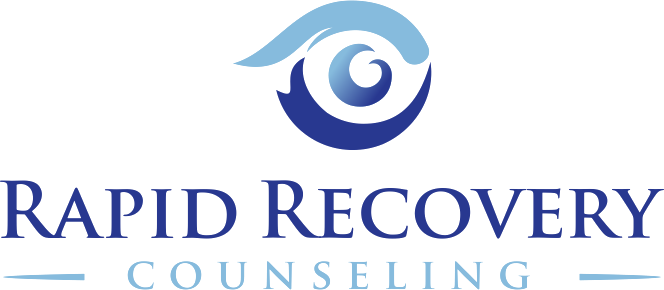What is Trauma?
Someone you love dies unexpectedly. A car accident. A rape or sexual assault. Neglect, betrayal, or abandonment in childhood. War. A trauma is anything that overwhelms a person’s ability to cope. Traumas can be a one time event (like a death or an accident), or they may be repeated over time (such as being in an abusive relationship). You may recover on your own after a few weeks or months. On the other hand, you may have post traumatic stress in the form of unpleasant symptoms such as feeling “on guard” at all times, intrusive memories or flashbacks, nightmares, anxiety (including panic attacks, phobias), muscle tension, difficulty sleeping, addictive behavior, shame, depression, avoiding situations, and general fear. There are many more symptoms of traumatic stress that negatively affect people. But you’re interested to know, is there help? The answer is yes. You can heal and move beyond the trauma that’s been holding you back.
Rapid Recovery Counseling utilizes Accelerated Resolution Therapy (ART) as a go to treatment for trauma. This evidence-based treatment (meaning it has been researched and shown to be effective) allows you to change the way traumatic memories are stored in your brain so that they no longer trigger the strong emotional and physical reactions that are causing your PTSD symptoms.
There is a school of thought that views PTSD as a chronic brain disease that can not be overcome but only managed, usually with psych meds, for the rest of one’s life. I do not believe this. I’m not stating that I have the “cure” or the “magic bullet.” However, I have seen many people release, resolve, and recover from their traumas and live fulfilling lives without the debilitating symptoms of PTSD.
Causes of Post Post Traumatic Stress Disorder
We usually tend to think of those with PTSD as having experienced a clear cause of their symptoms; like a soldier who went to war. This is often the case, however it is common for less obvious events to produce trauma symptoms:
- Death of a loved one
- “Minor” car accidents, especially those that cause whiplash
- Unexpectedly having to move or losing a job
- Medical and dental procedures; especially when performed on children that are restrained or anesthetized, or that are invasive.
- Falls- especially when children or elderly people are involved
- Natural disasters
- Illness
- Being left alone
- Exposure to extreme heat or cold (especially in babies and children)
- Sudden loud noises (especially in babies and children)
- Birth stress, for both mother and infant
- Drug addiction, and the behaviors often associated with it.
You may notice, if you reread the list slowly, you feel some physical sensations in your body as a response.
You may have memories and images that come to mind; along with some nervousness and anxiety. These responses have to do with the activation of energy that your body naturally produced during the overwhelming event to protect itself. The problem is that the memories, images, and sensations did not get “put away” in their proper place. It’s like the smoke alarm in your house that won’t go off. The goal in your trauma therapy is to fix your body’s alarm system so that your mind and body can feel safe and relaxed.
Symptoms of Post Traumatic Stress Disorder
There are many signs of traumatic stress however some of the most common symptoms of PTSD include: feeling jumpy, avoiding things that remind you of traumatic events, trouble sleeping/nightmares, feeling like you are reliving the traumatic event, difficulty concentrating, withdrawing from others, and feeling depressed. You don’t have to suffer through these symptoms. Specialized trauma treatment can help you recover from PTSD.
There are typically four categories of PTSD symptoms and they show up differently depending on your personality and life experience. Through your intake assessment, we will get a clear picture of what you’re struggling with and what we need to work on. The four primary ways PTSD impacts our lives are:
1.Intrusive thoughts
Intrusive thoughts take on many form. Involuntary memories, nightmares, and flashbacks are the most common. These disturbing thoughts and memories often show up at the worst times. All you want to do is stop thinking about what happened and move forward, but the negative memory keeps holding you back.
2. Avoiding situations
We naturally seek things that feel good and avoid things that feel bad. So it makes sense that if you experienced something really stressful you may find yourself avoiding anything that reminds you of that bad memory. At first you may feel better when you push away the memories of the injury/accident/loss/assault, or whatever your trauma. You may even feel normal. However, you then find yourself avoiding more and more situations, people, things, and thoughts to the point you feel anxious, depressed, and isolated.
3. Self-Defeating Ideas
Many people with PTSD develop self-defeating thoughts and beliefs about themselves or others that are driven by emotions like fear, anger, guilt, or shame. These thoughts and beliefs look like, “I’m a bad person”, “I can’t trust anyone”, “I should have died instead.” As a result of these thoughts, you may have less interest in activities you once enjoyed. You begin feeling disconnected from friends, family, and significant others.
4. Reactive behavior
Reactive behavior associated with trauma can include anger outbursts, irritability, reckless or self-destructive behavior, being easily frightened, or having problems with concentration or sleeping.
It is natural for these symptoms to be experienced following a traumatic event. However those with PTSD will experience these symptoms for months and even years following the initial trauma. Often in an attempt to cope, people will use substances such as alcohol or drugs.
What to expected in Trauma therapy
Your recovery process begins at your initial session where we will get to know each other and establish safety and trust. It’s important that you feel understood and that we solidify your goals for treatment.
Then, if you are motivated to recover and wish to move forward, we will proceed with Accelerated Resolution Therapy. Many clients find that in about 3-5 ART sessions many of their symptoms have resolved. You may wish to continue your counseling for any ongoing stressors or anxieties in your life, however my goal is to help you find healing quickly so that you can get in an out of therapy.
You may have concerns about treating your trauma because you are afraid of having to talk about it over and again. Thankfully, that is not the case. With ART, you do not have to share with me the details of your trauma if you do not want to. It is not necessary to talk about what happened for your therapy to be successful. We actually find that overly talking about it can be retraumatizing and slow down the healing process.
Accelerated Resolution Therapy is not hypnosis. There is no homework in between sessions, however we may set goals to utilize coping skills such as breathing techniques for anxiety. Accelerated Resolution Therapy is a unique blend of well established techniques such as EMDR, Gestalt, Guided Imagery, Cognitive Behavioral Therapy, Exposure Therapy, and Brief Psychodynamic Therapy. You will be in control of the therapy every step of the way and will likely experience rapid recovery.
Find Us
Nags Head, NC 27959

